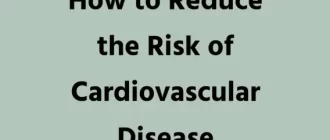People have historically used vaccinations as a prophylactic method to safeguard against a variety of illnesses. Vaccine myths and misunderstandings have grown over time, including the notion that vaccinations impair immune function. This notion has stoked widespread anxiety and led to some individuals avoiding vaccinations. But is there any basis for this assertion?
To assist you in deciding whether vaccinations are both safe and effective, we will examine the connection between vaccines and the immune system in this article.
Understanding the immune response to vaccines
The secret to knowing how vaccinations function in the body is to comprehend the immunological response to immunizations. A vaccination serves to train the immune system how to fight off future infections by simulating an illness when it is administered to a patient. White blood cells like T-, B-, and macrophages are used by the immune system to combat illness.
When the body contracts a germ for the first time, it takes time for the immune system to build the defenses necessary to ward off illness. Following the infection, the immune system retains the knowledge it gained about how to defend the body from that disease.
Without causing serious illness, vaccines aid in the body’s development of immunity. In light of the fact that the body produces T- and B-lymphocytes over a period of a few weeks after vaccination, there is only a brief loss of protection. The safest method of preventing a disease is by vaccination, although no vaccine is 100 percent effective. [1][2]
Debunking myths about vaccines weakening the immune system
One of the most common vaccine-related fallacies is the notion that vaccinations impair immune function. This is absolutely untrue, however. In actuality, vaccinations are created expressly to boost the immune system, assisting it in identifying and combating potentially hazardous viruses and germs. Because some people may experience minor side effects like a low-grade fever, soreness at the injection site, or mild fatigue after receiving a vaccination, some people might mistakenly believe that vaccines weaken the immune system.
These symptoms, however, are a typical aspect of the body’s immunological reaction to the vaccination rather than an indication that the immune system is weak or damaged. It is critical to realize that vaccinations protect people and communities against a variety of infectious illnesses while also being safe and effective. [3][4]
Vaccines and immune-compromised individuals
People with compromised immune systems may have a reduced response to COVID-19 vaccines and are therefore more likely to experience severe illness from this virus. Immunocompromised people should get all of their immunizations, including boosters, as recommended by the Centers for Disease Control and Prevention.
The recommended immunization regimen for children and adolescents ages 6 months to 17 years should be followed. For instance, a Pfizer-BioNTech booster vaccination is recommended for children aged 6 months to 4 years who have already received the initial 3-dose main series. Those 5 and above may choose between a booster made by Pfizer-BioNTech or Moderna. Immunocompromised individuals should protect themselves against potentially fatal diseases by according to the CDC’s vaccination recommendations. [5][6]








The fact that vaccines weaken the immune system is not confirmed by any scientific research. On the contrary, many times the influence of vaccines on the formation of specific immunity has been studied, which, in fact, is the purpose of vaccination.